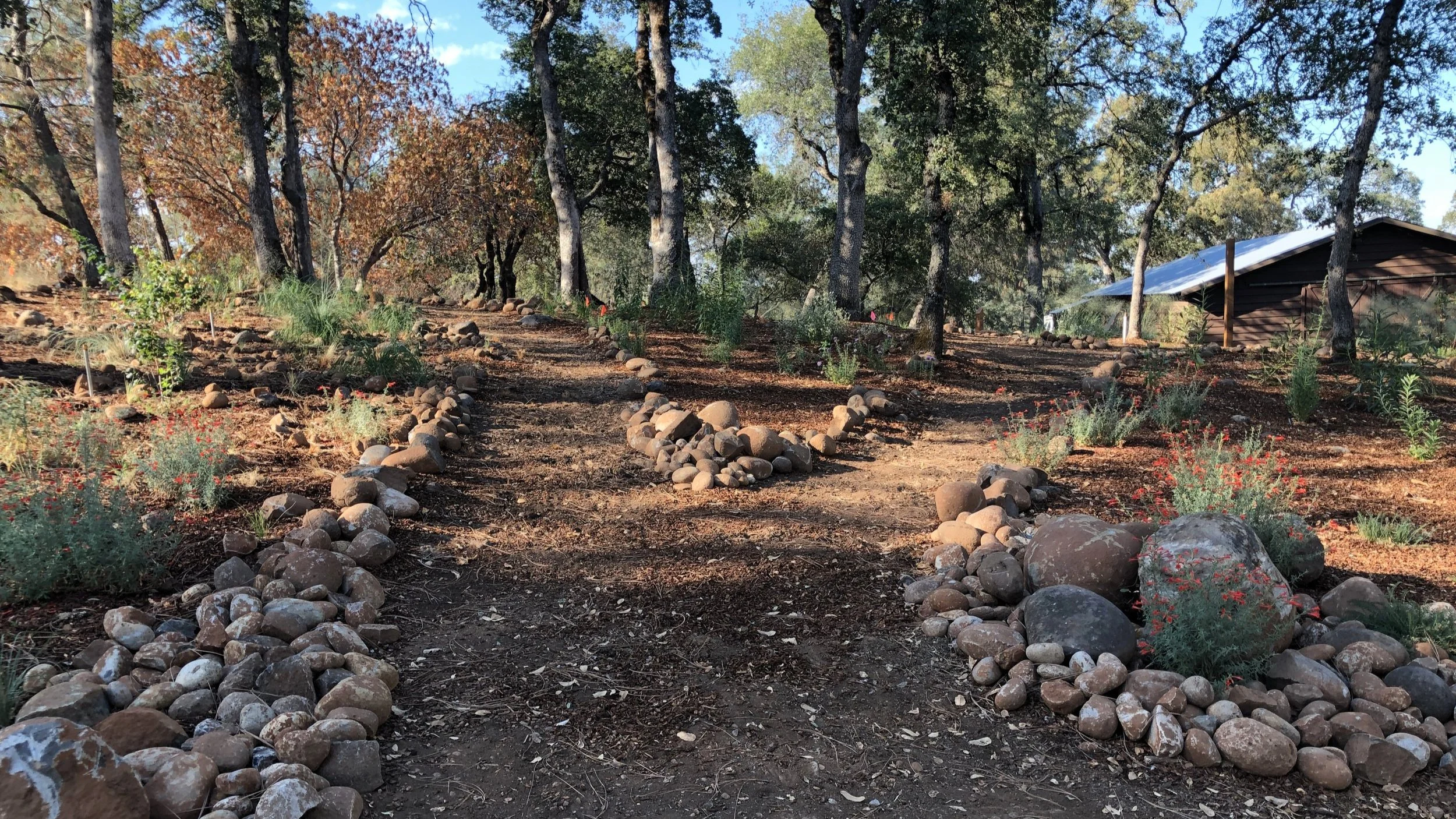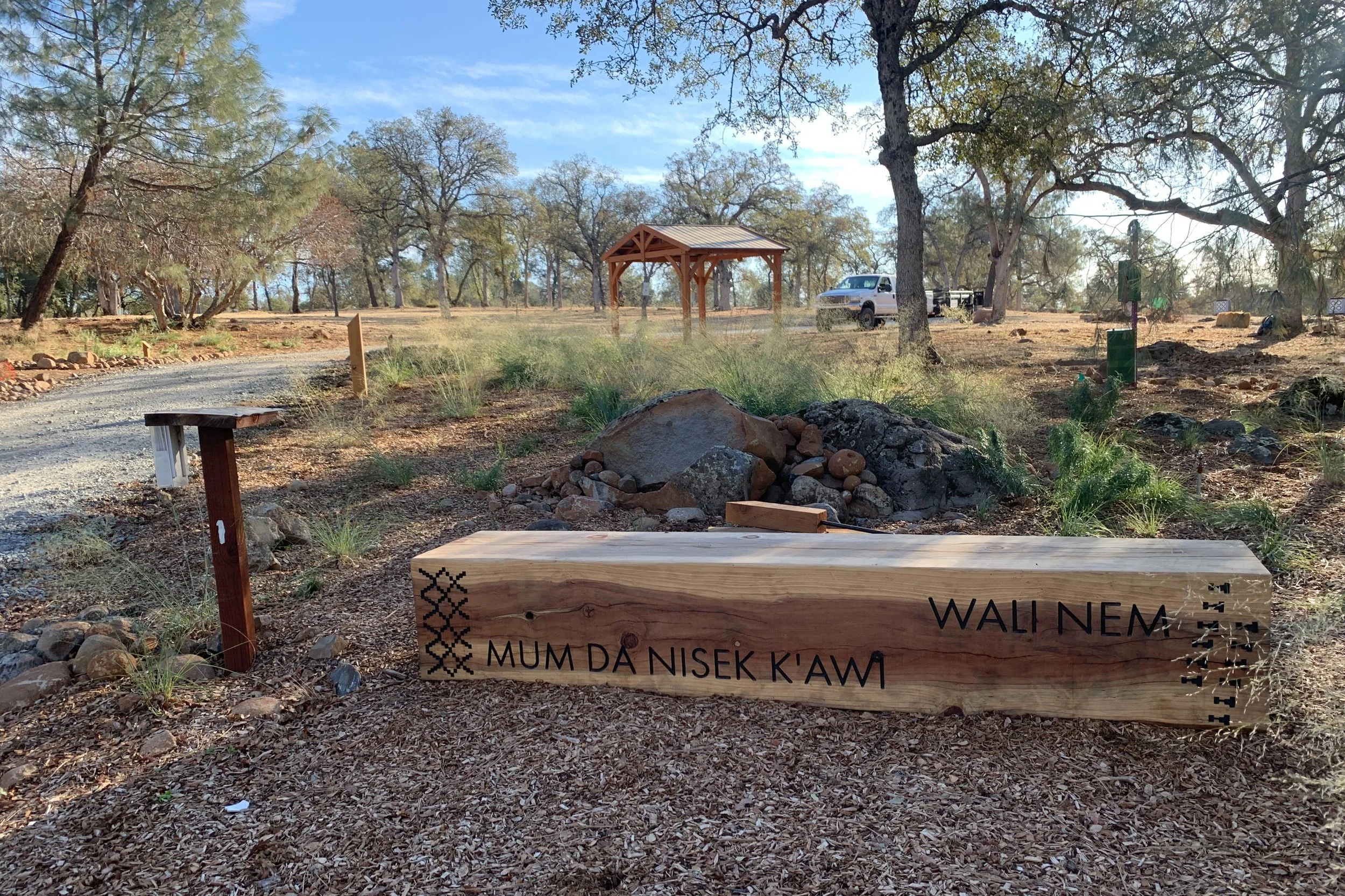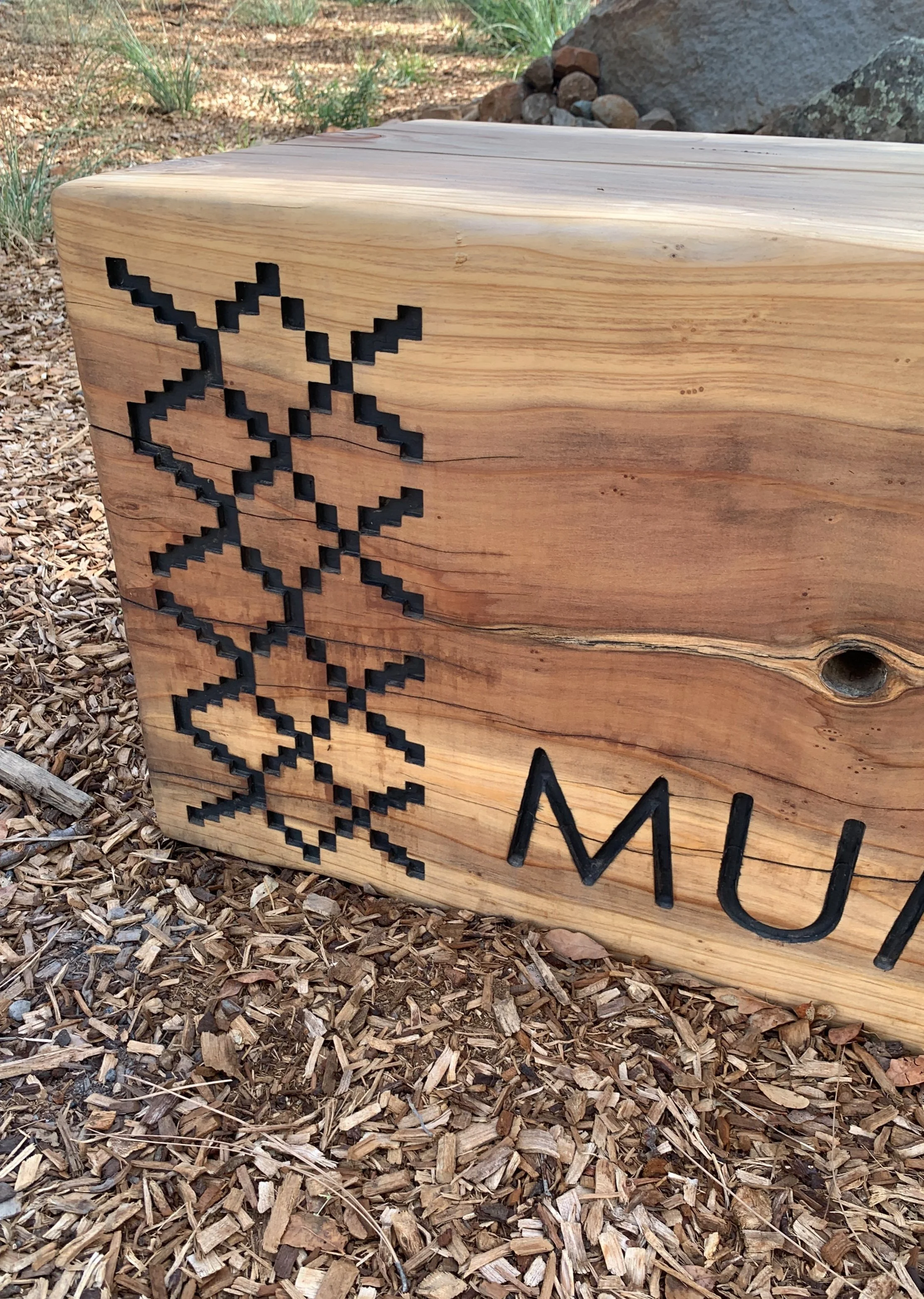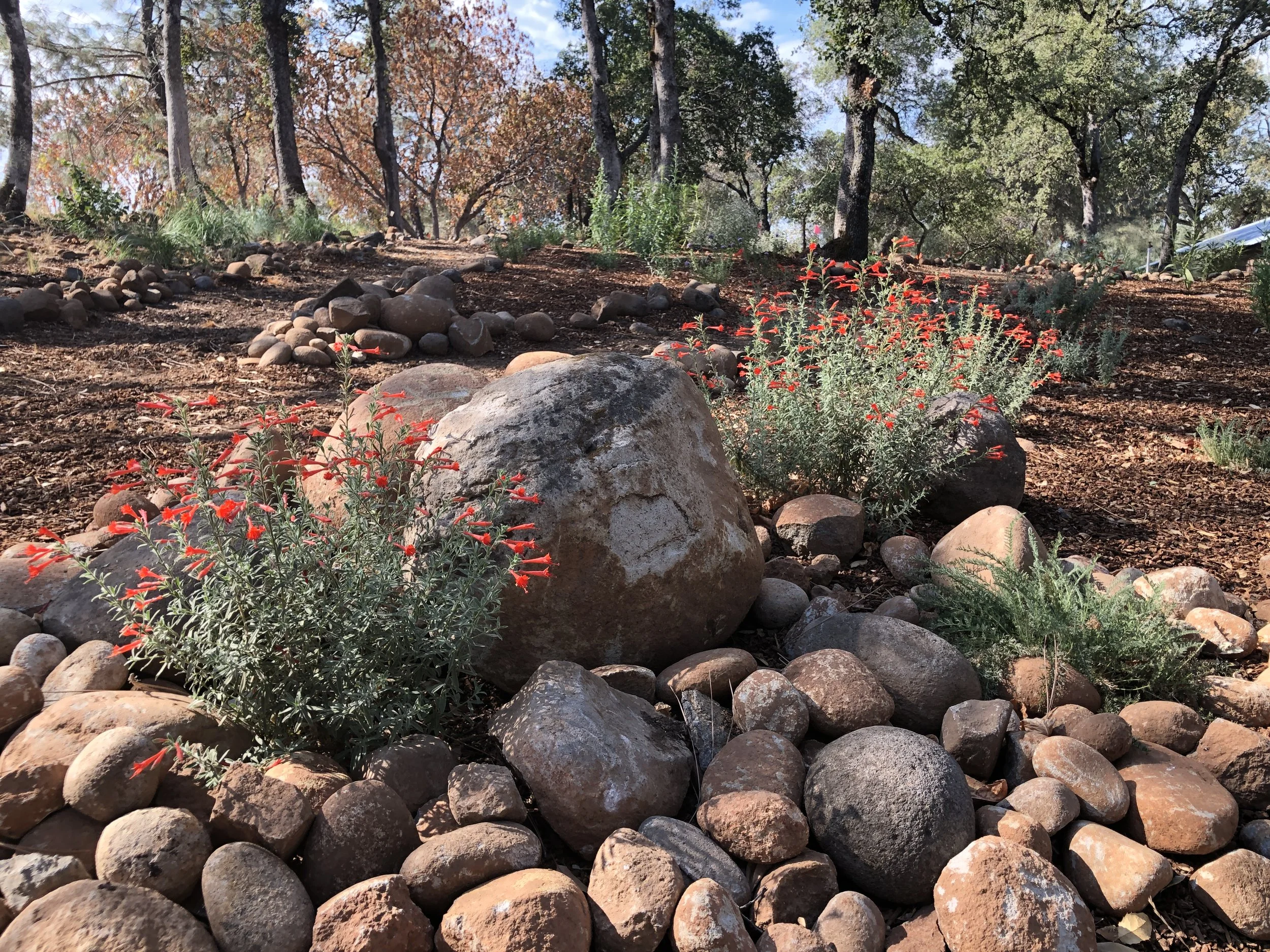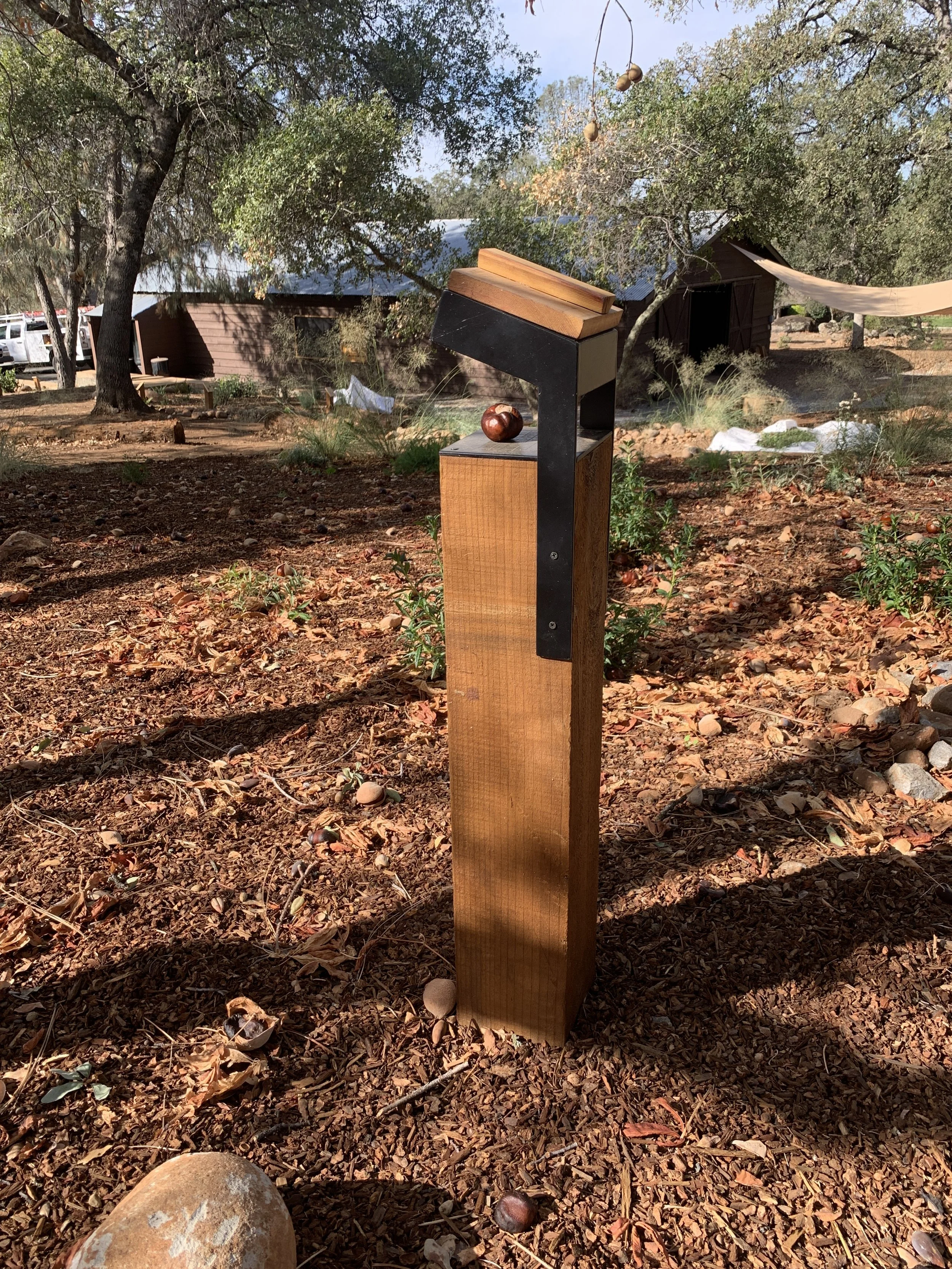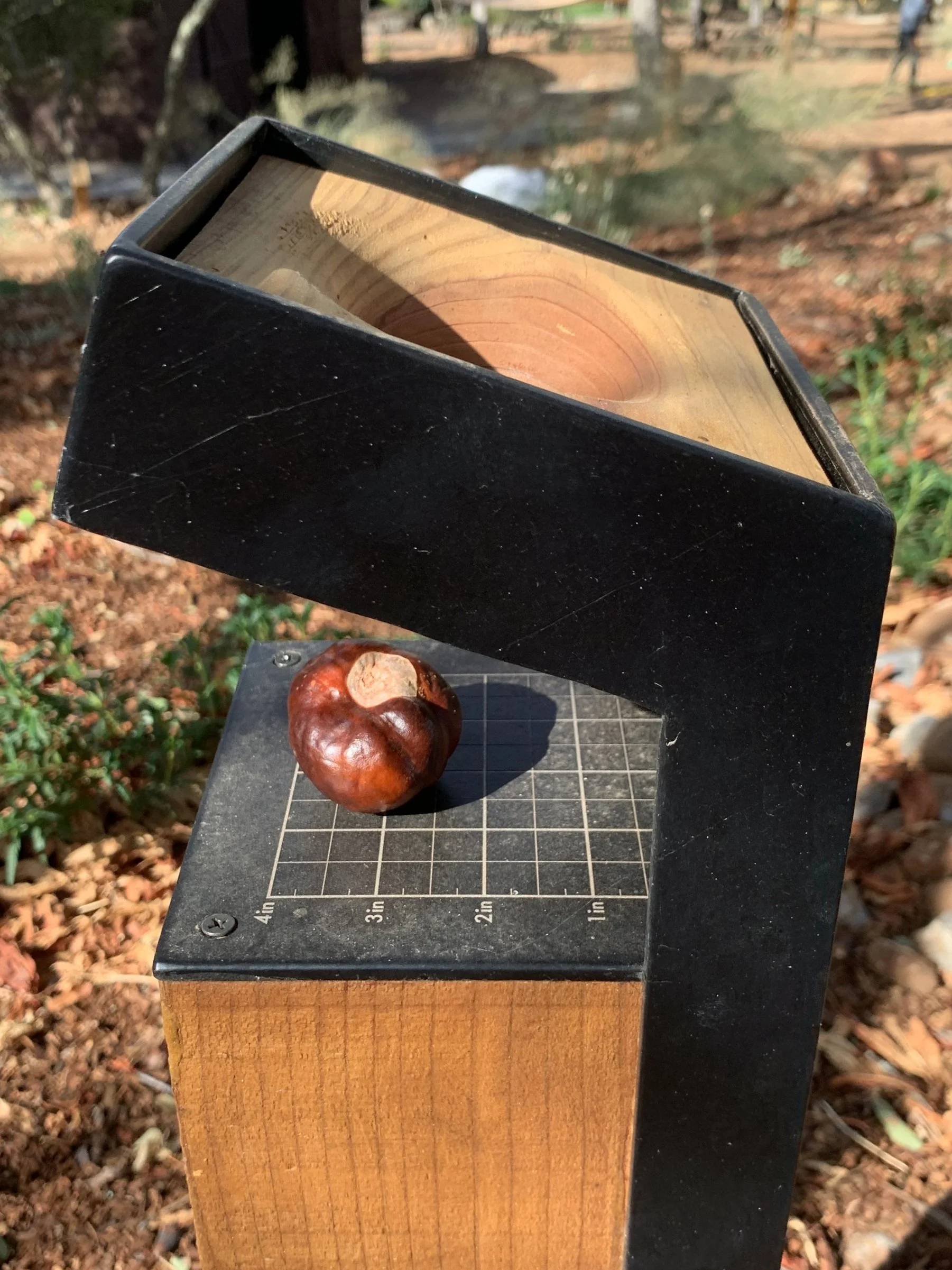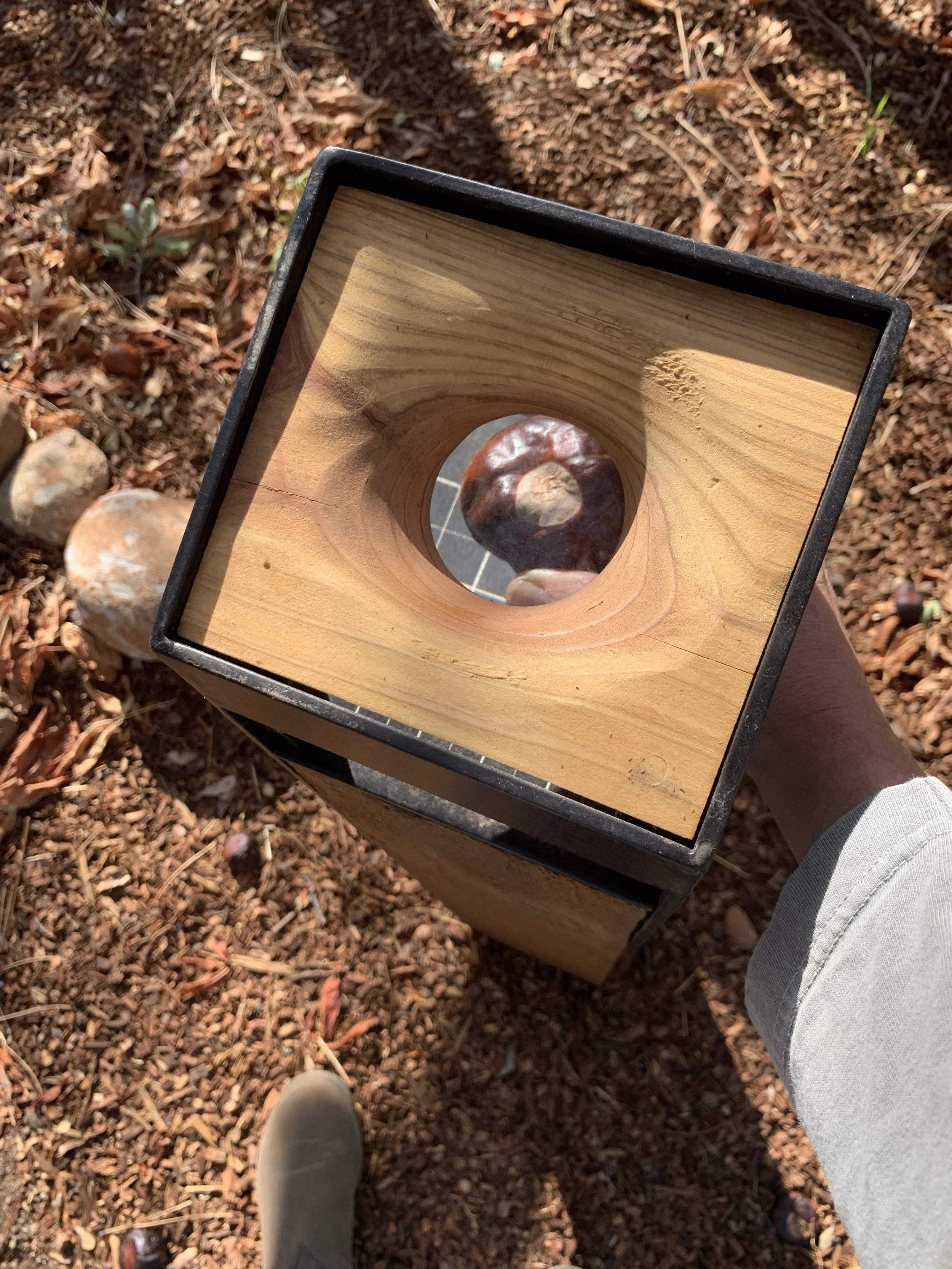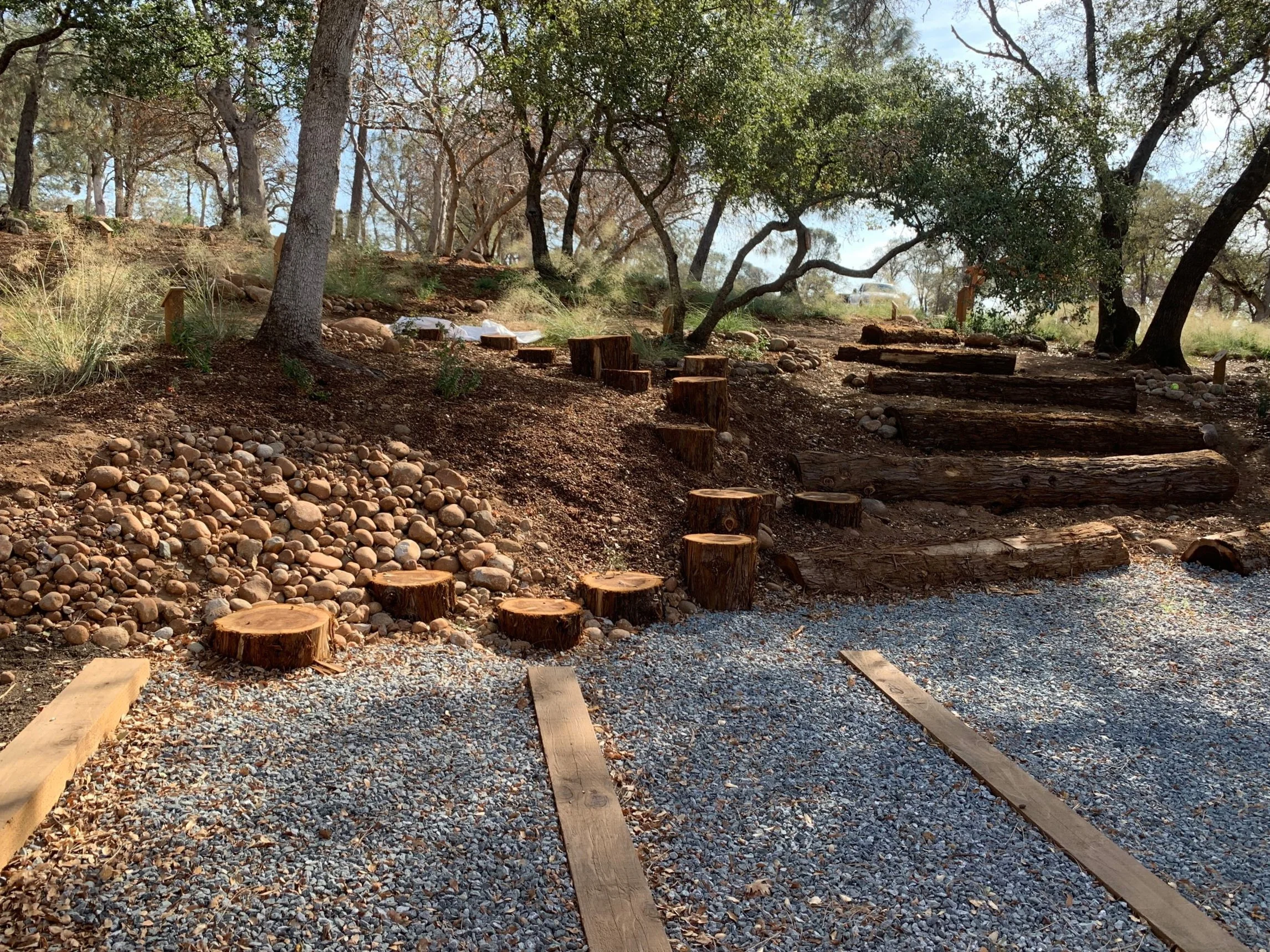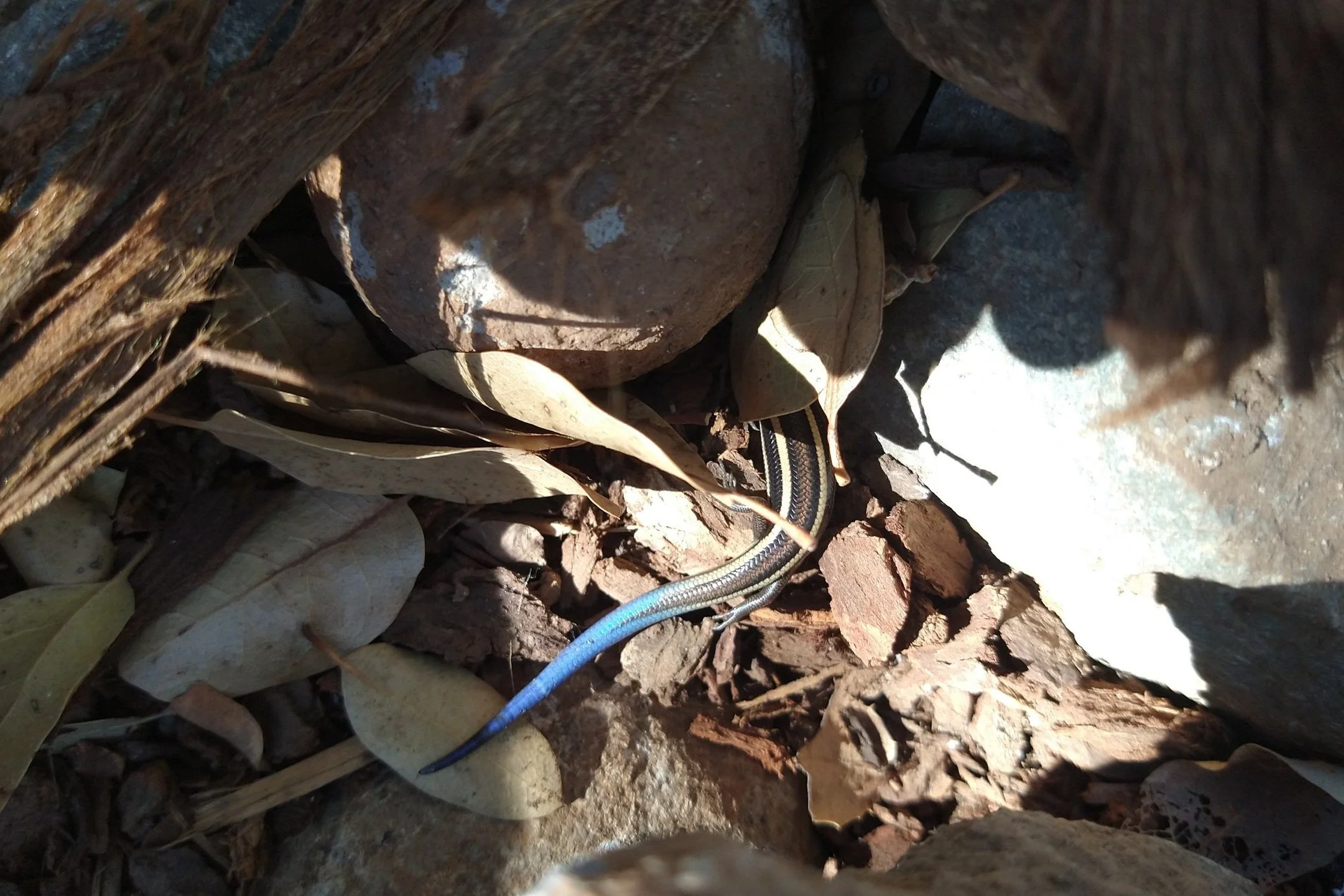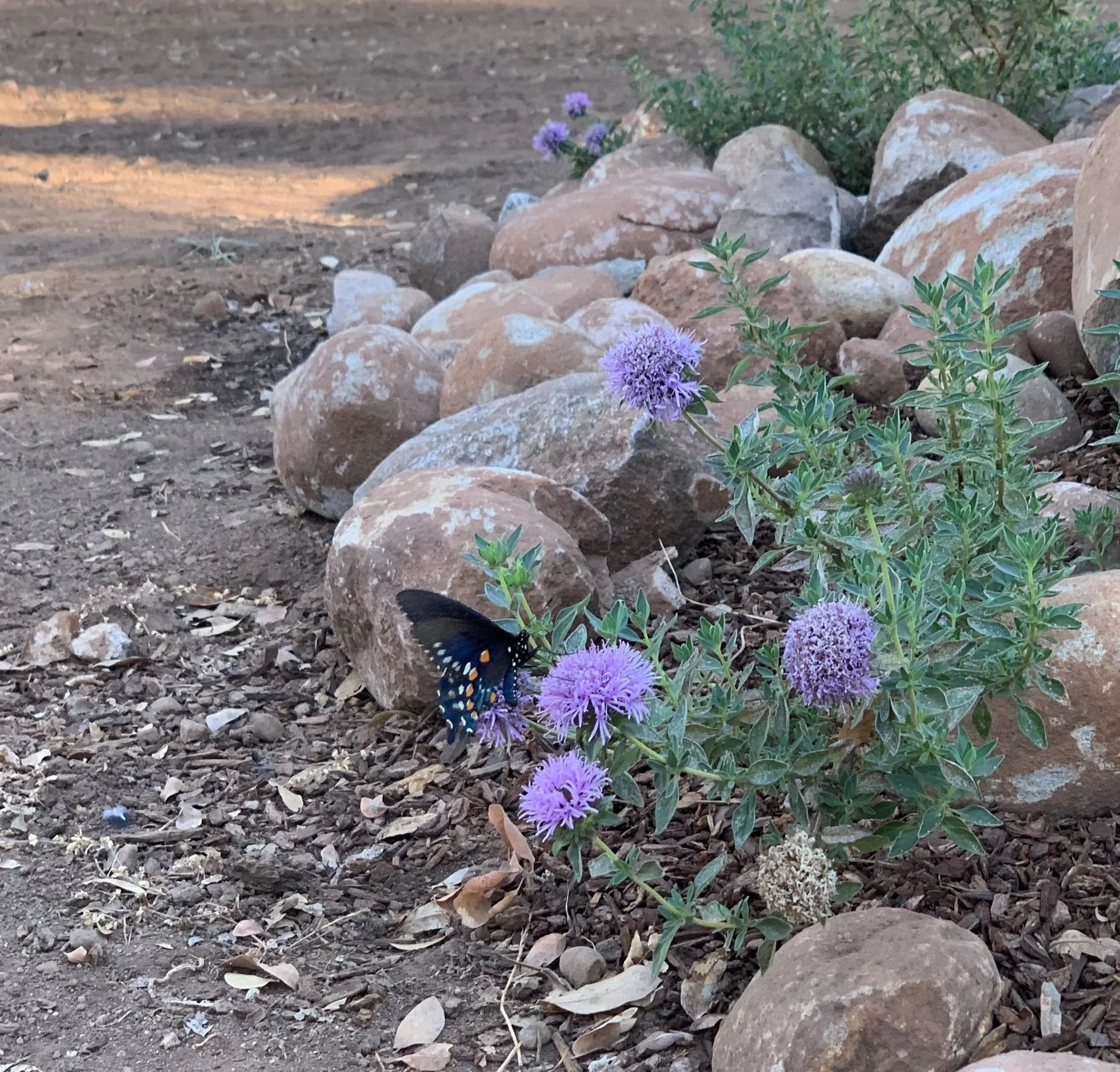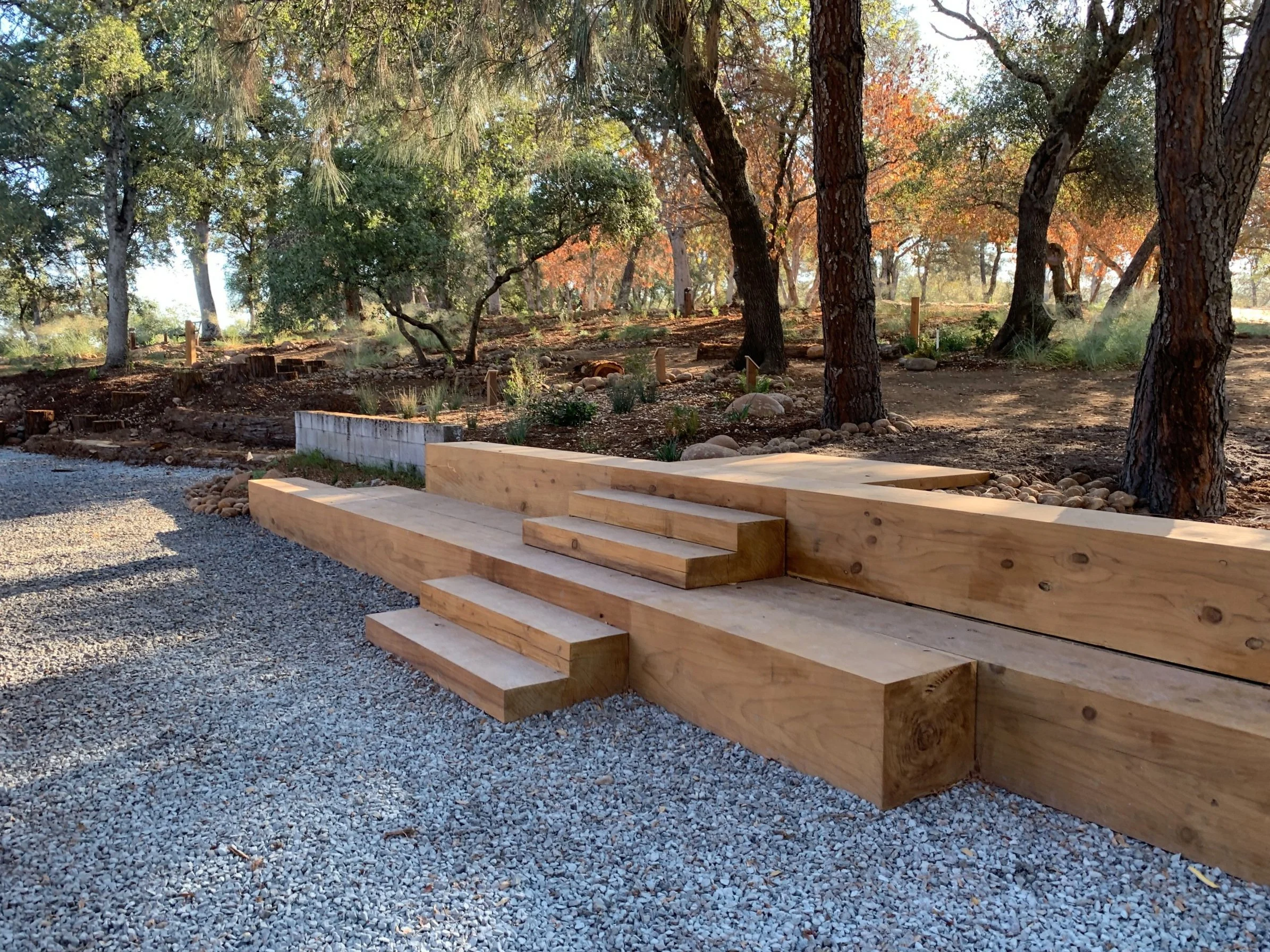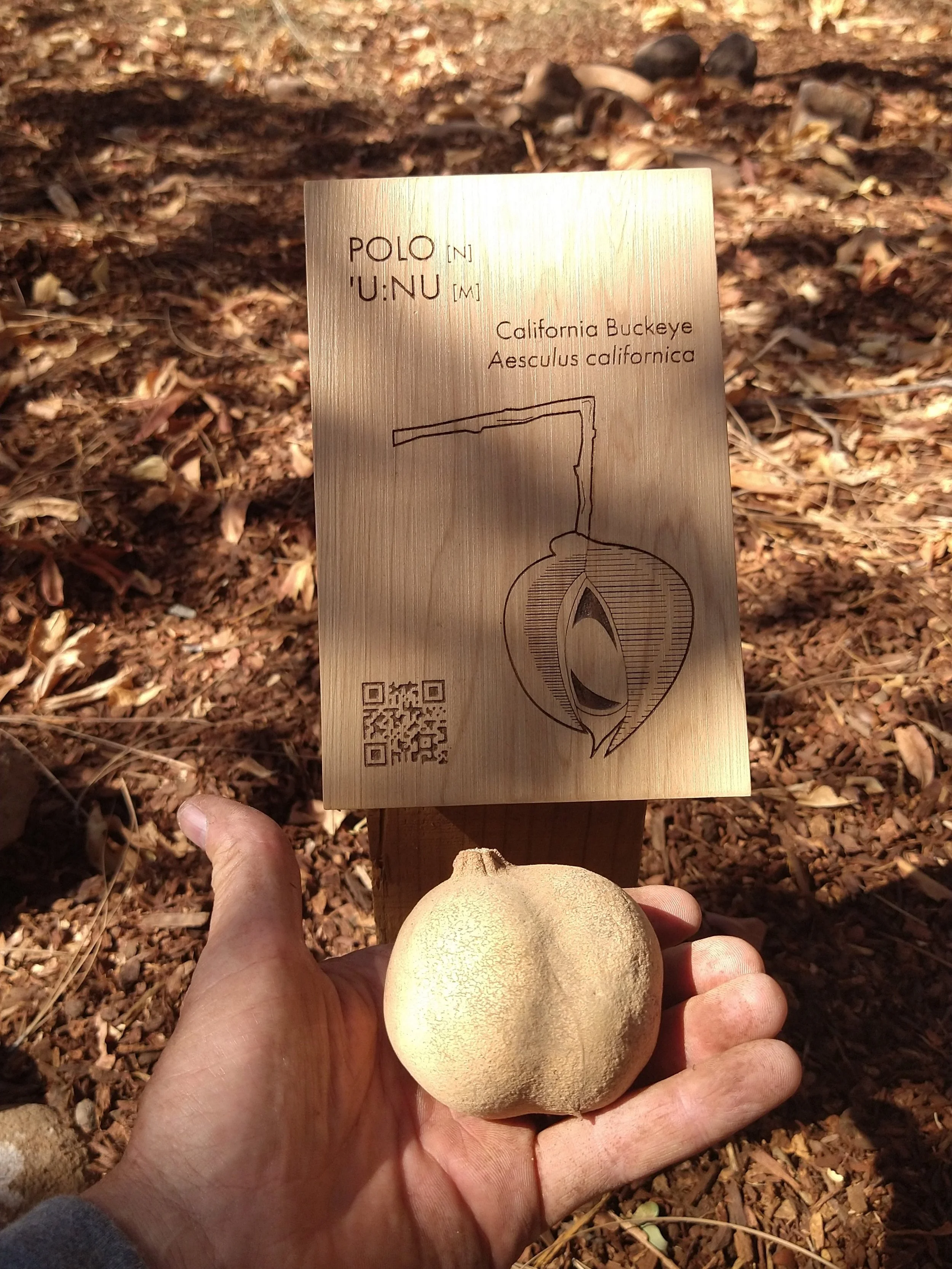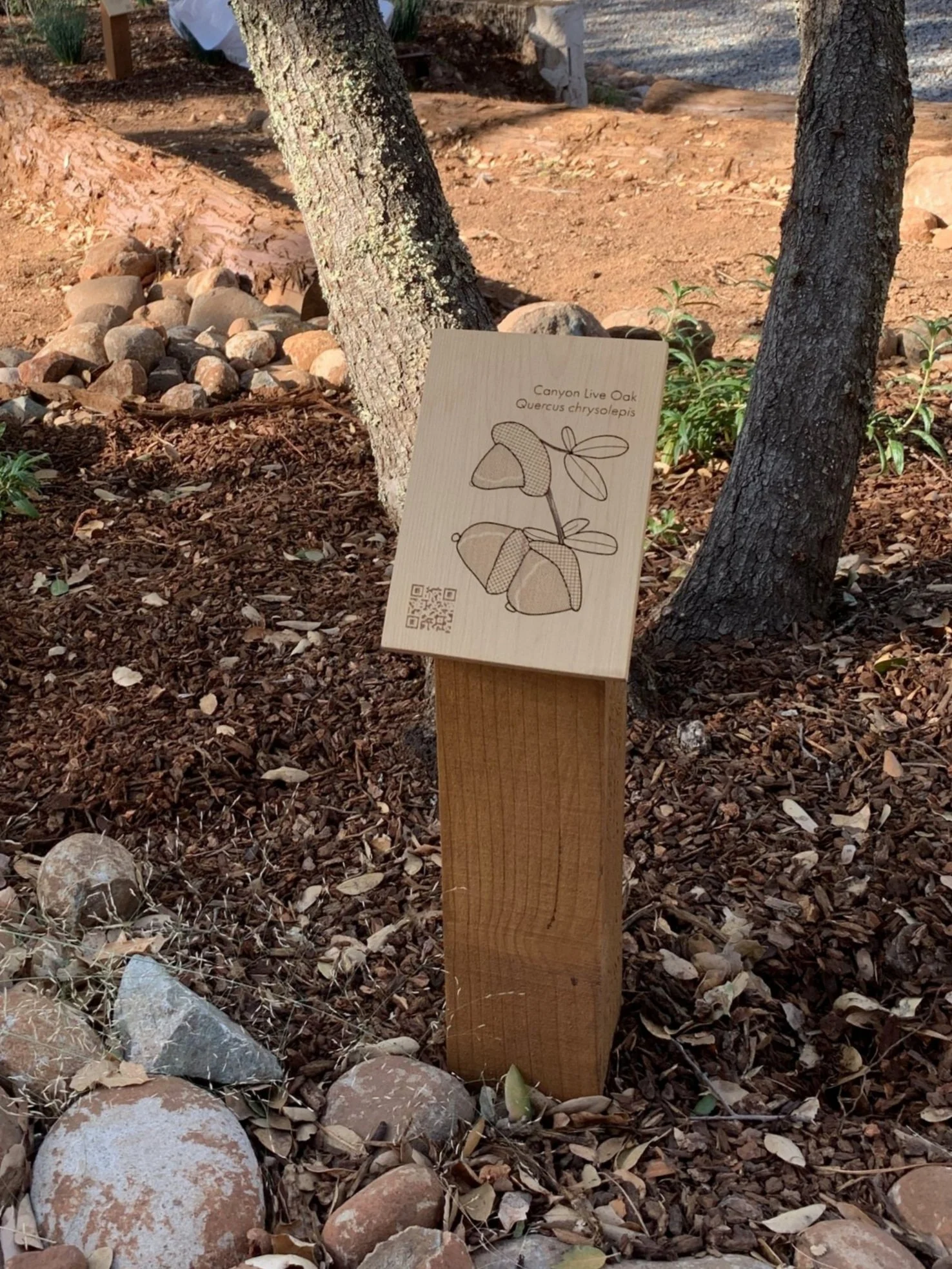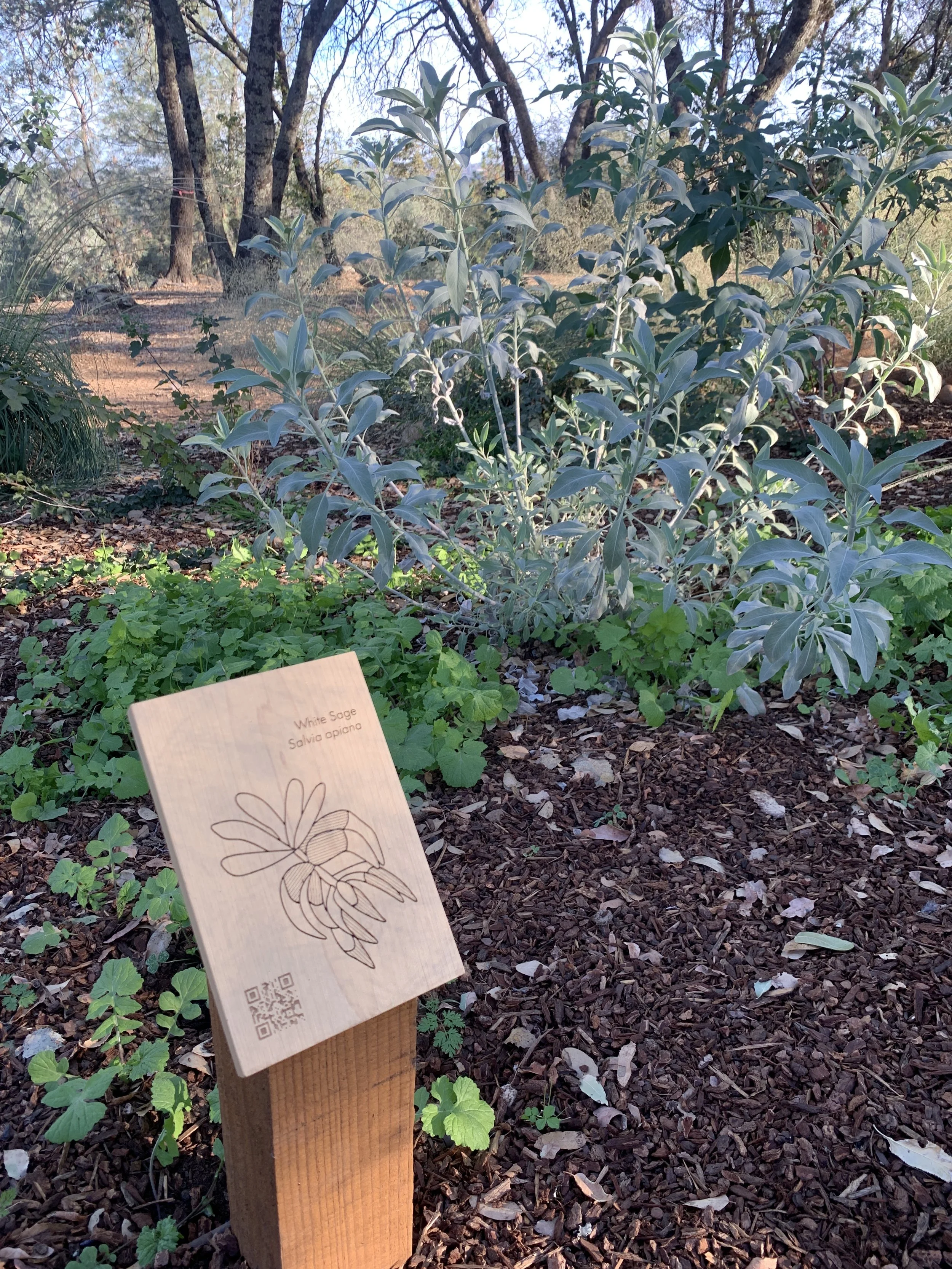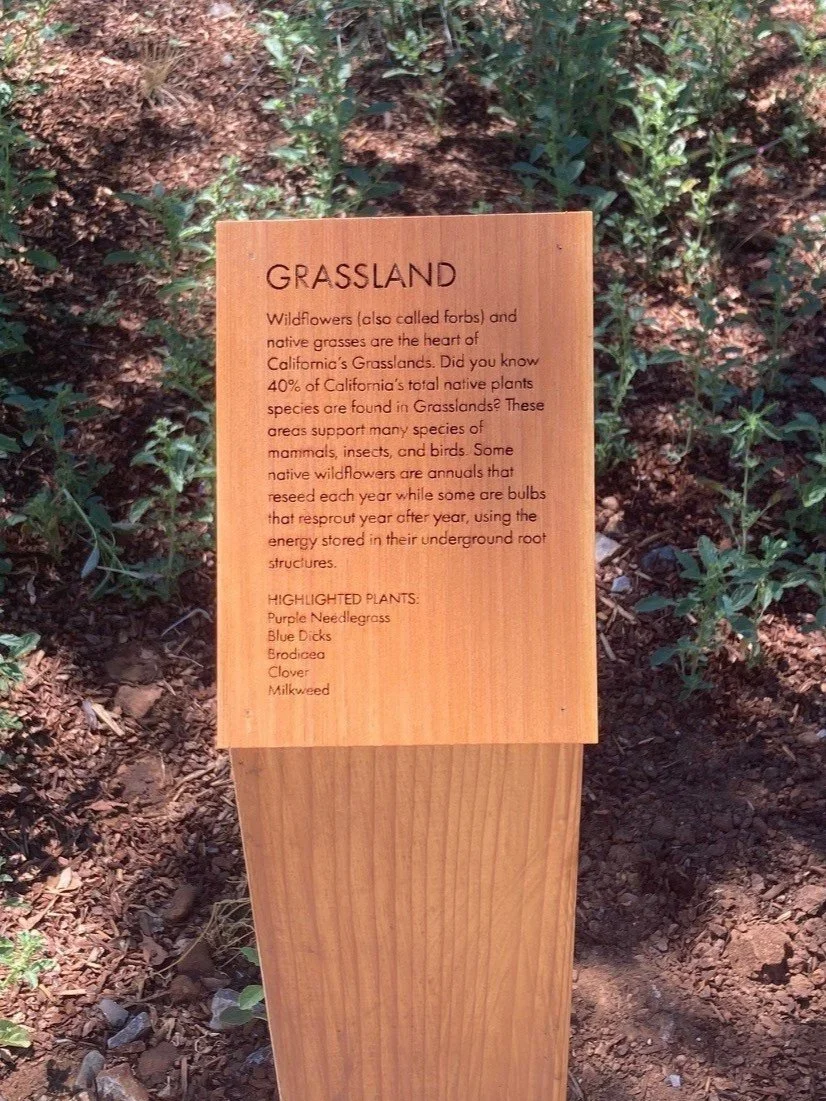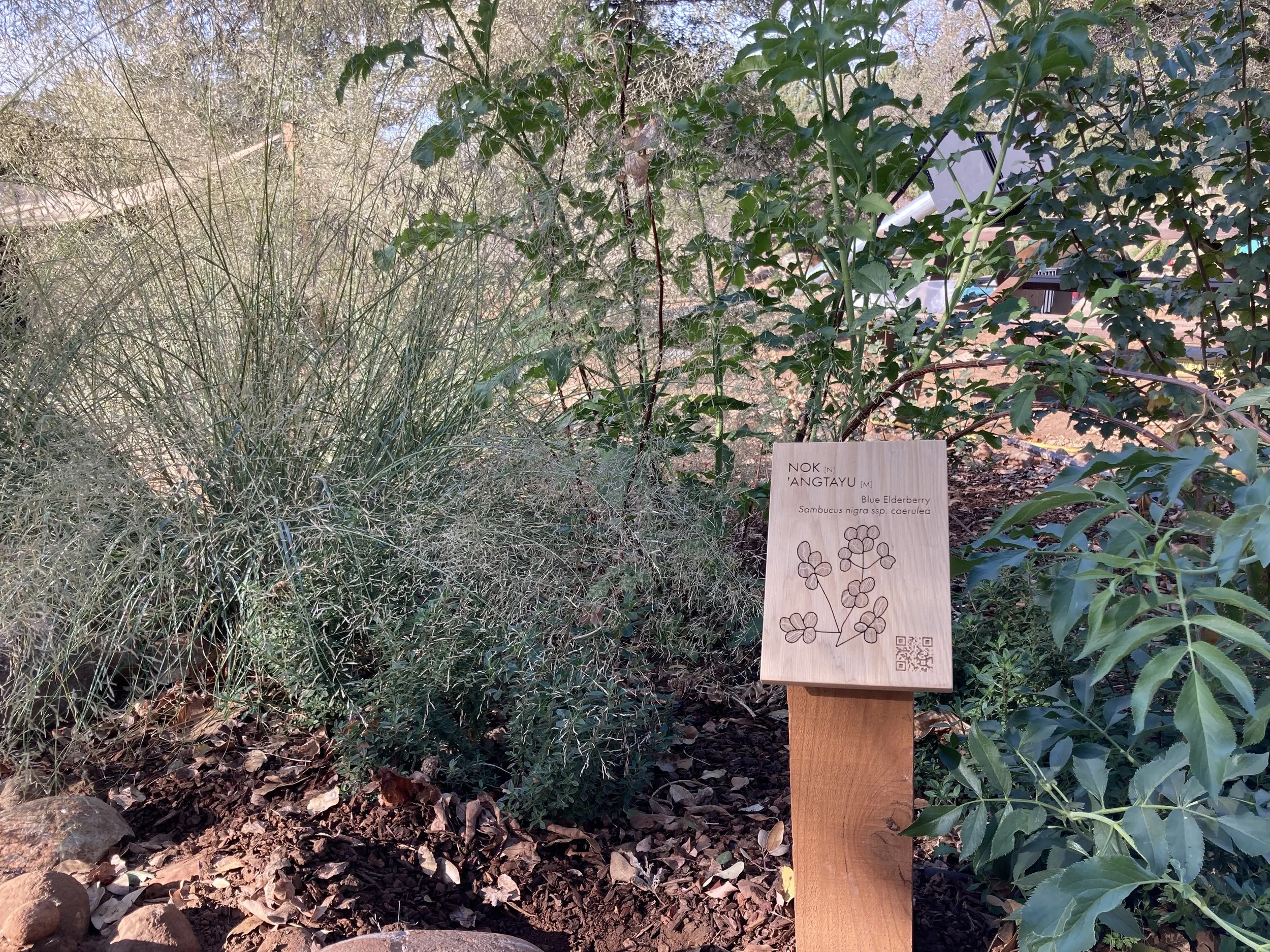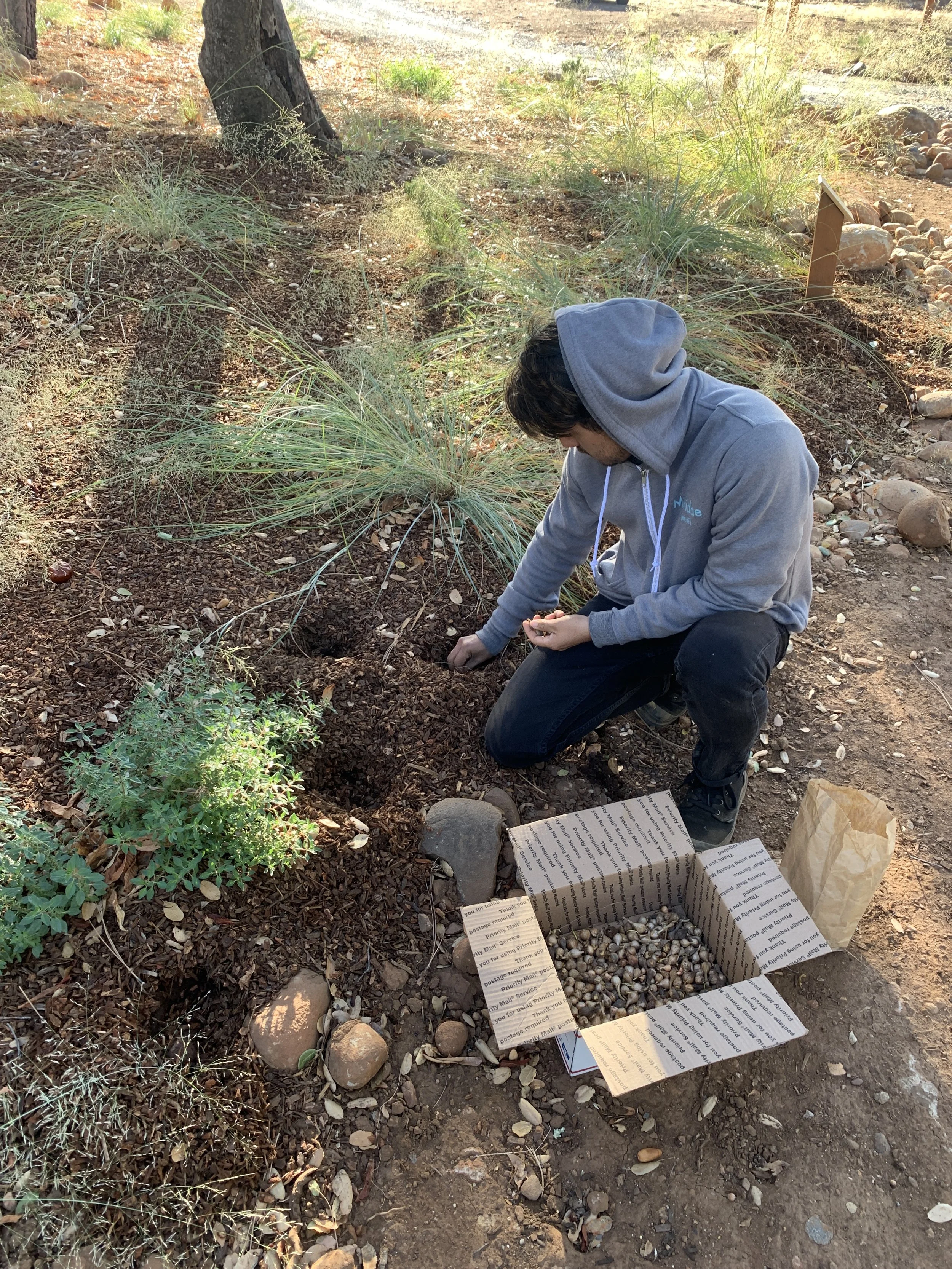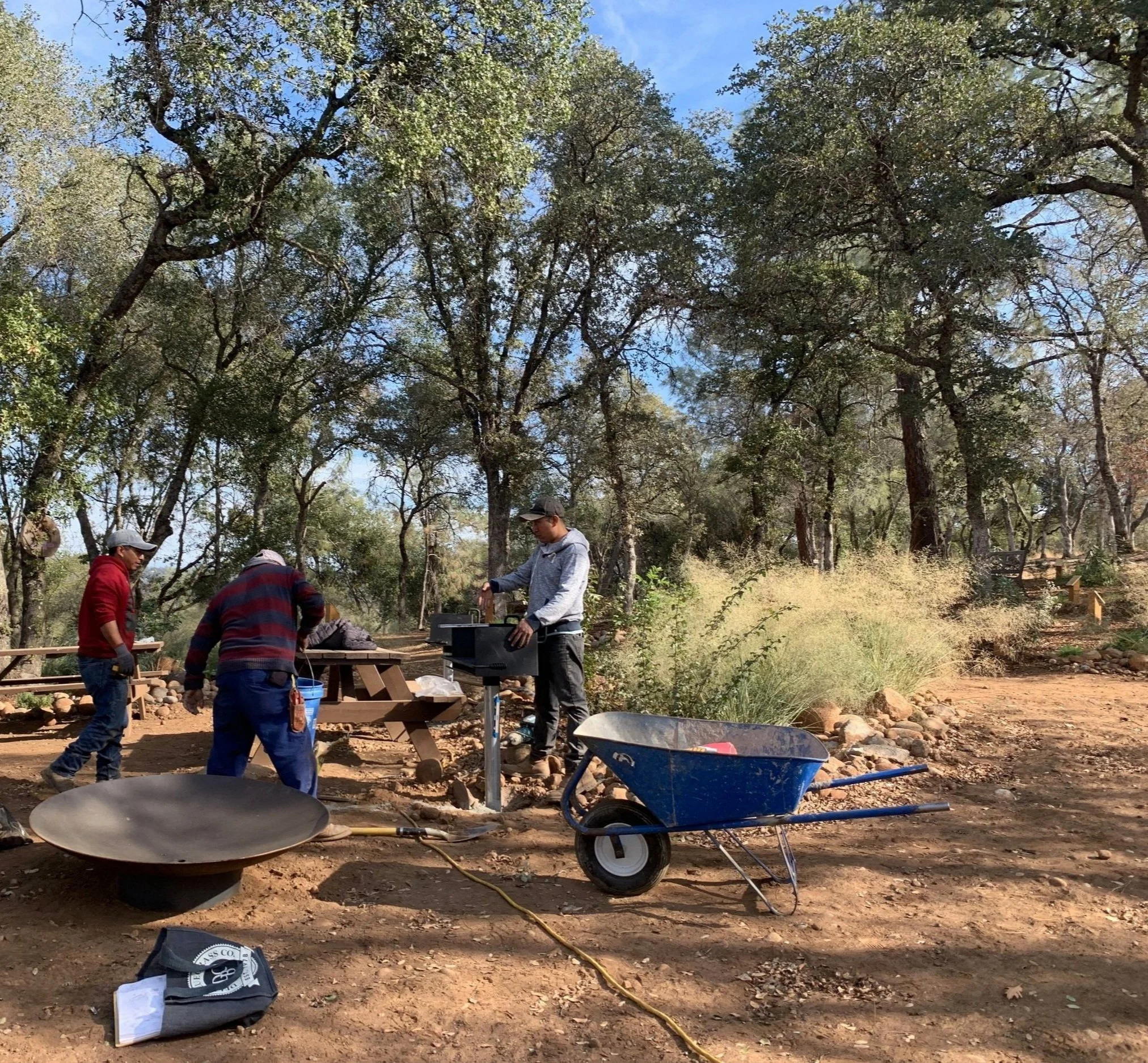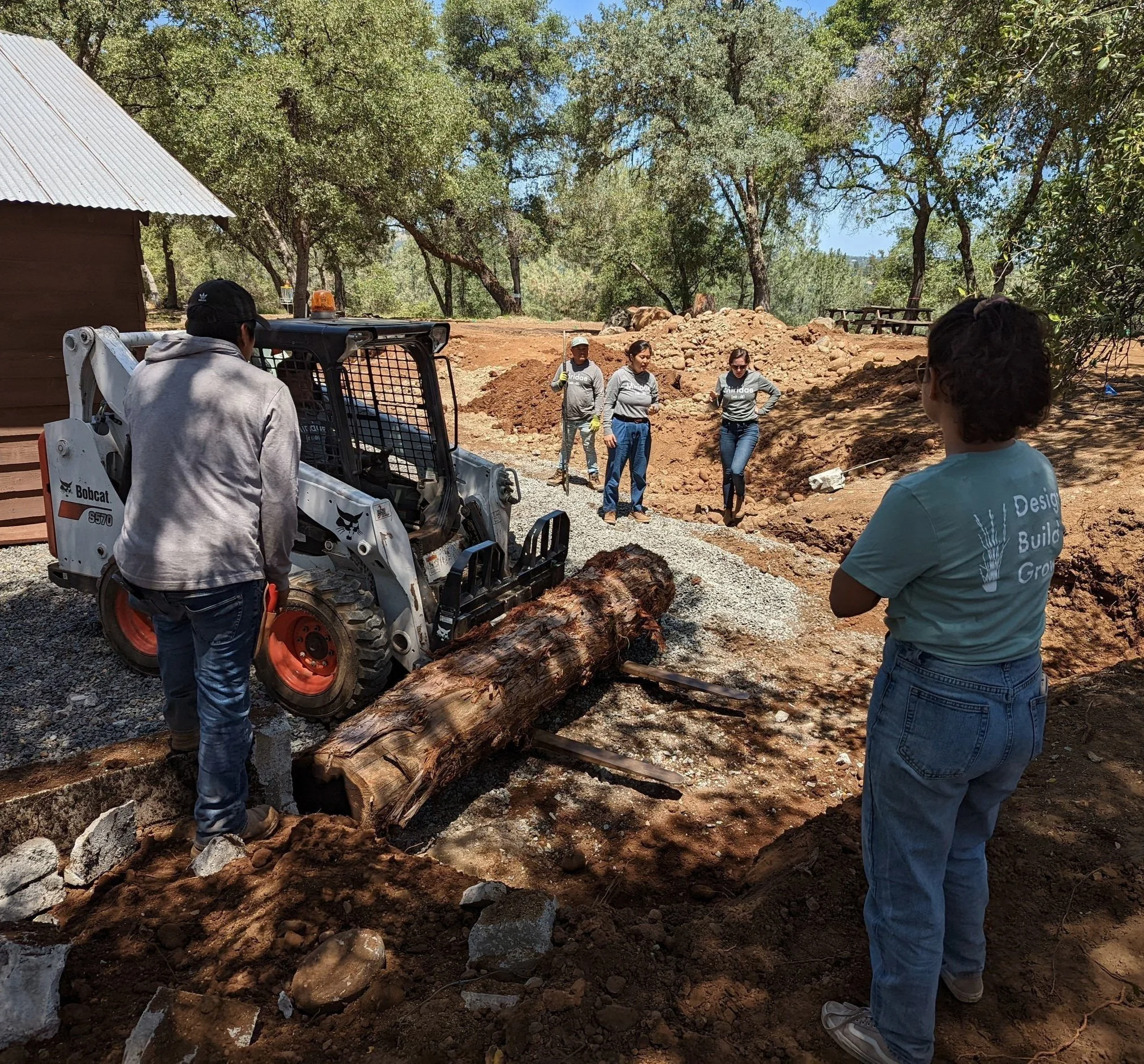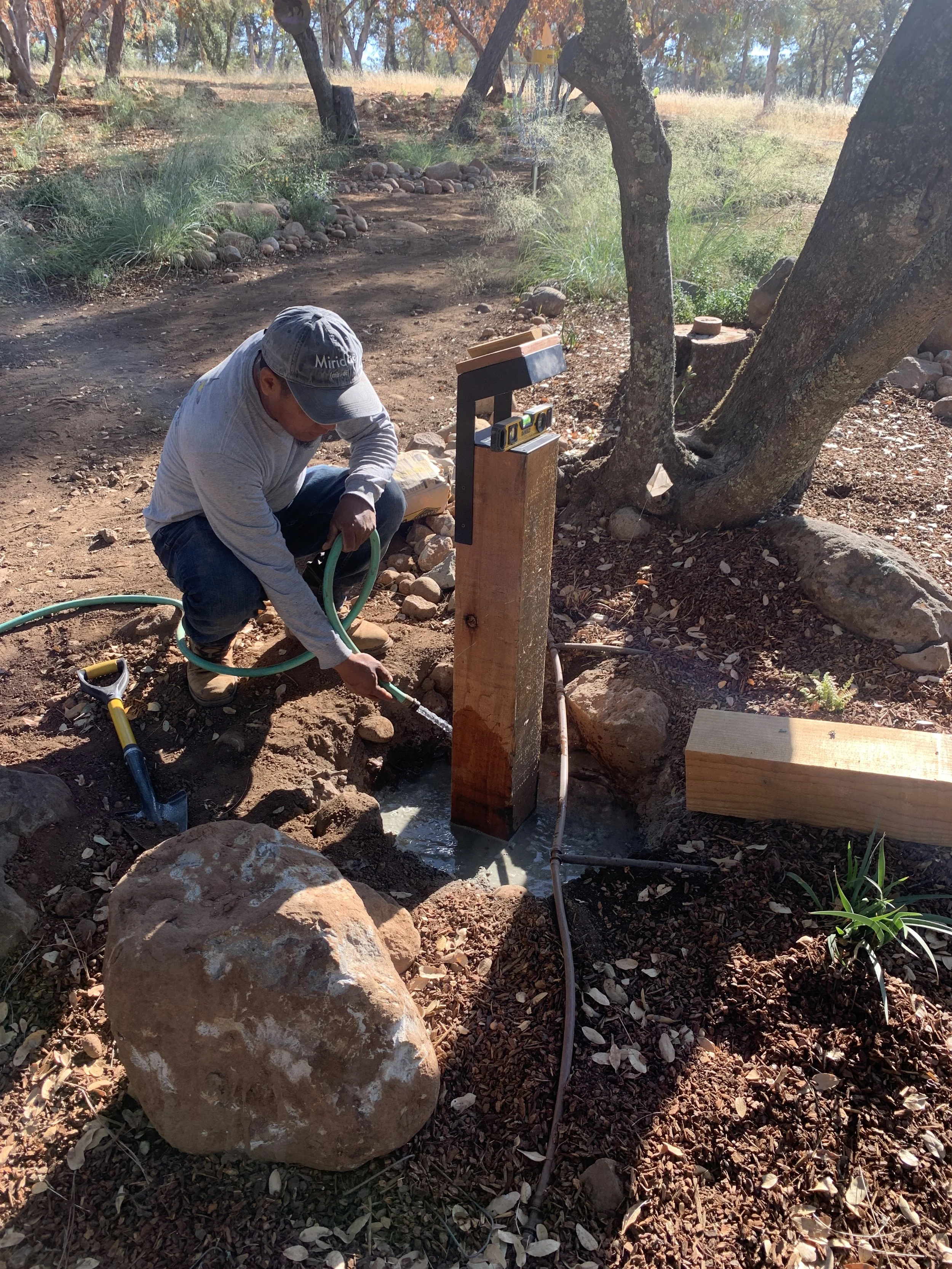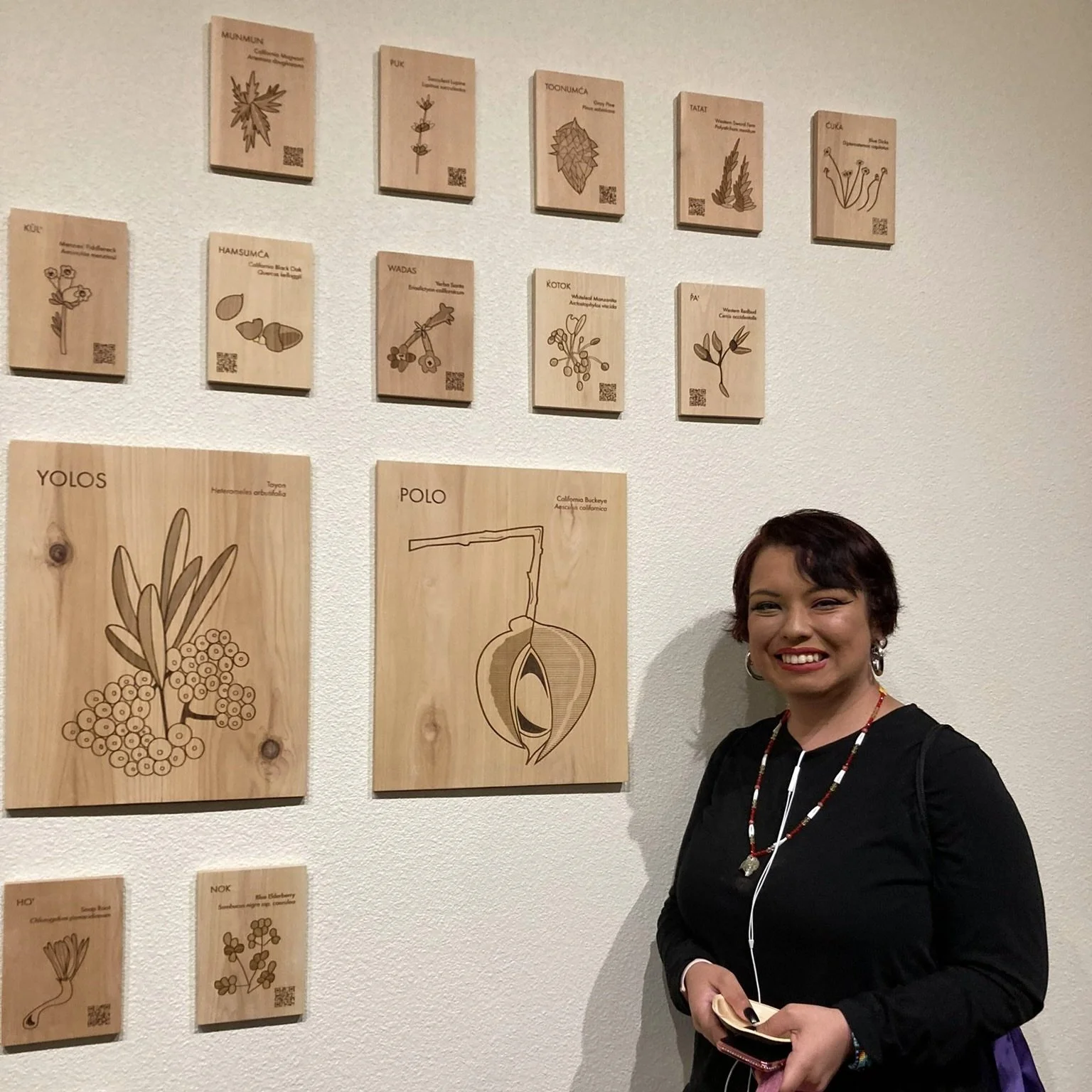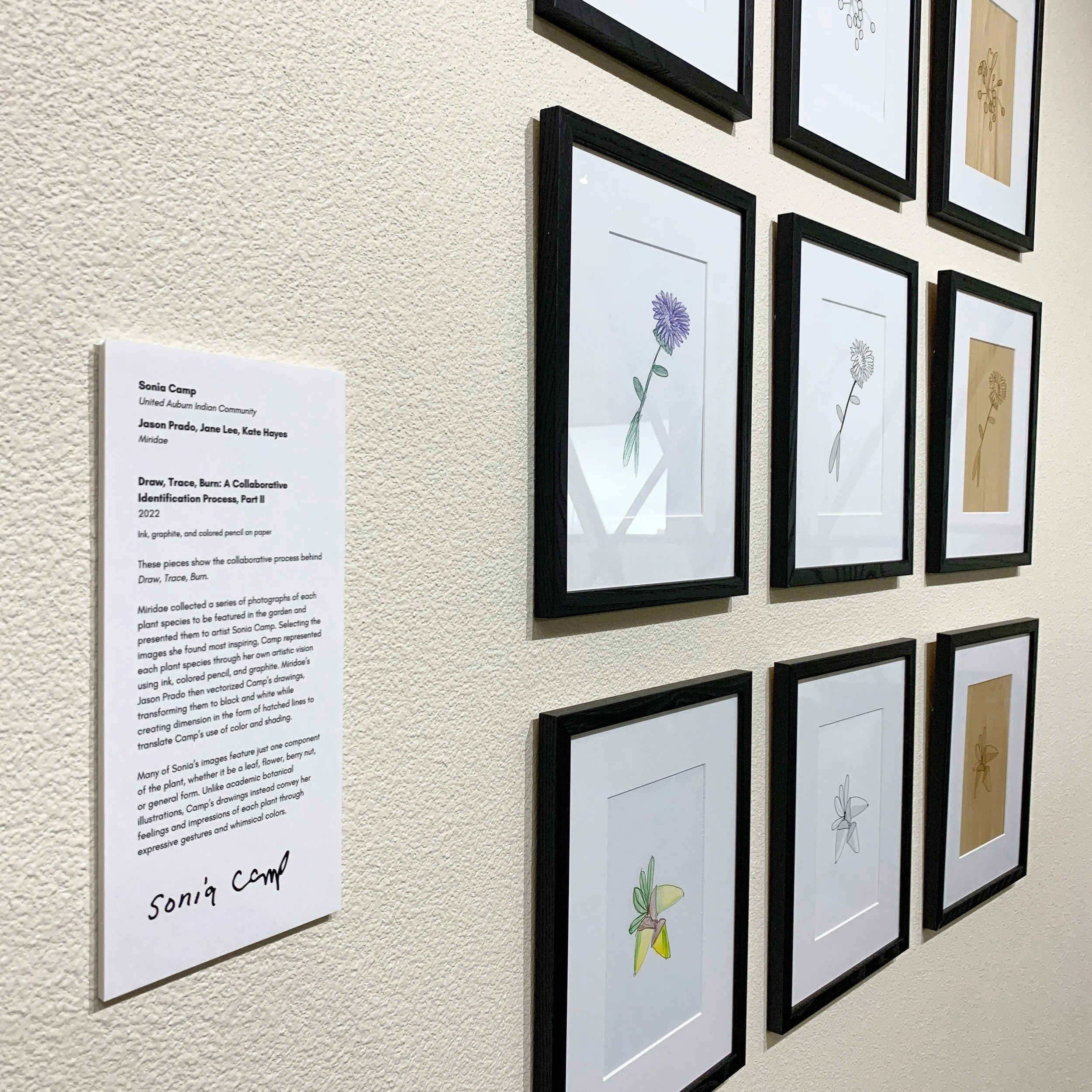THE LIVING WORKBOOK NATIVE PLANTS GARDEN
Educational garden
UAIC TRIBAL LAND | 2022
Working with the United Auburn Indian Community (UAIC) Preservation Department, Miridae designed and built a half-acre garden that serves as a microcosm of the diverse plant communities that grow across the traditional territories of the Nisenan and Miwok people. The garden features customized informational signage as well as magnifying stations that provide visiting tribal members with a chance to see insects, leaves, and seeds up close. Miridae remains in partnership with UAIC to integrate the garden into the surrounding 156-acre landscape through wayfinding strategies and gathering spaces, and to support the tribe’s efforts to revitalize cultural burning and propagation of culturally significant plants.
HIGHLIGHTED PLANTS
Arctostaphylos viscida (Whiteleaf Manzanita)
Artemisia californica (California Mugwort)
Cercis occidentalis (Western Redbud)
Chlorogalum pomeridianum (Soap Root)
Cynoglossum grande (Western Houndstongue)
Dipterostemon capitatus (Blue Dicks)
Eriodictyon californicum (Yerba Santa)
Muhlenbergia rigens (Deergrass)
Quercus douglasii (Blue Oak)
Welcome Bench at the entrance to the garden
Rocks unearthed during construction were retained on site and integrated into the garden’s design
Magnifying stations throughout the garden
Reclaimed urban timber provides playful ways to navigate a slope
Outdoor classroom bleachers
DRAW, TRACE, BURN
Working with United Auburn Indian Community tribal member and artist Sonia Camp, Miridae created portraits of culturally relevant plant species. Camp drew sketches of the plant species, which Miridae translated into vector files and laser cut into cedar wood. In addition to the plant portraits, the signs contain the Nisenan, Miwok, English, and Latin names of the plants. The signs are attached to moveable posts with Velcro, so that they can easily be removed and used in the outdoor classroom by students from the UAIC Tribal School.
A selection of these signs and drawings of the process are on display at the Maidu Museum in Roseville through April 2023.
Artist Sonia Camp with the plant signs at the Maidu Museum
Images by Miridae
